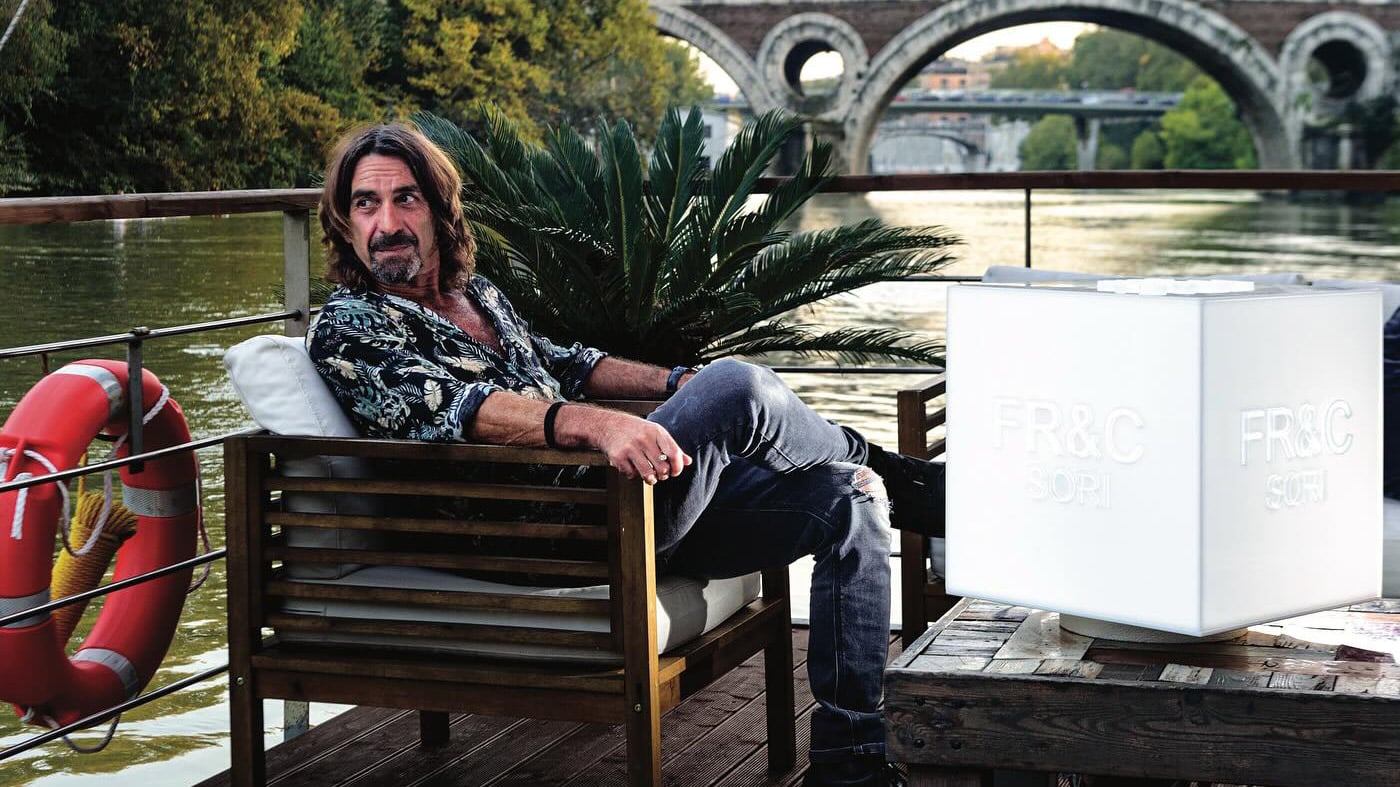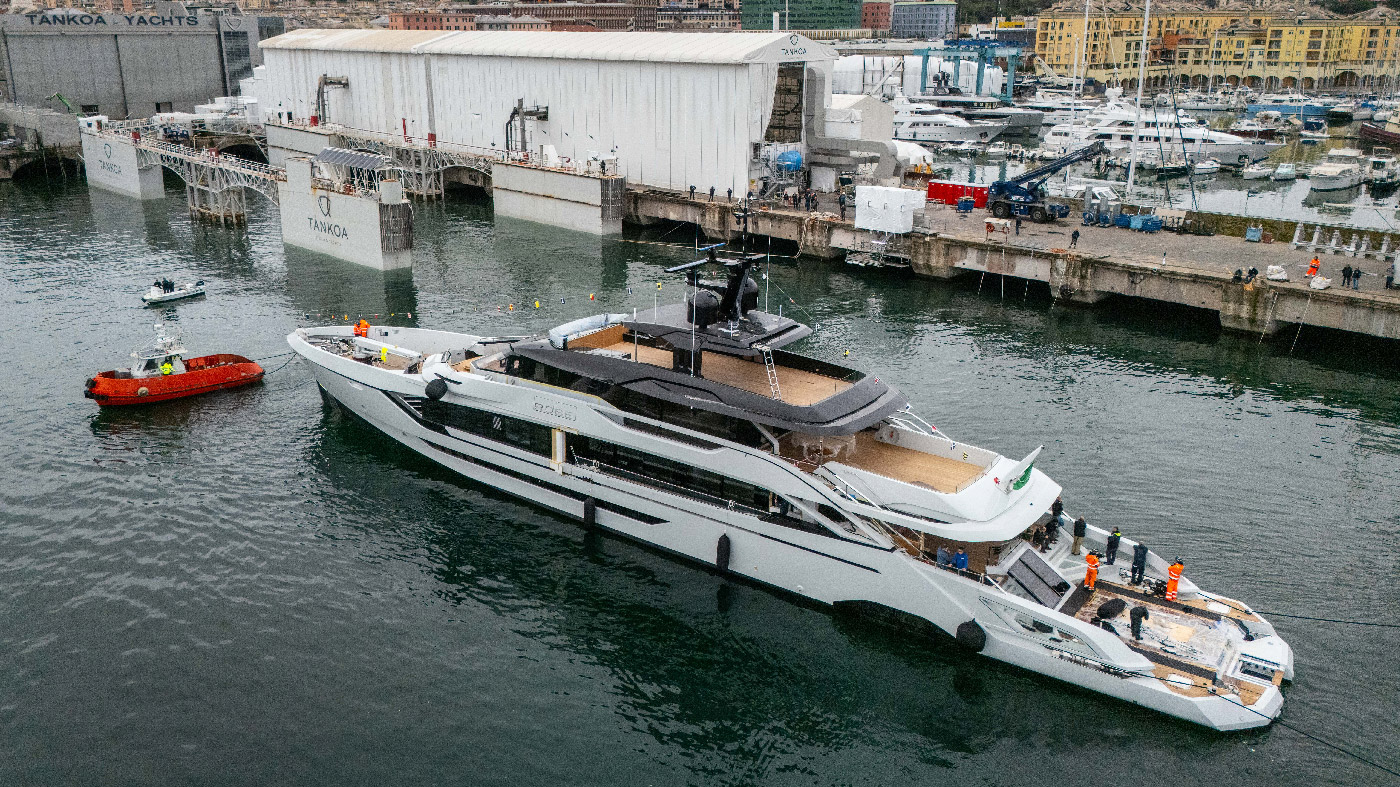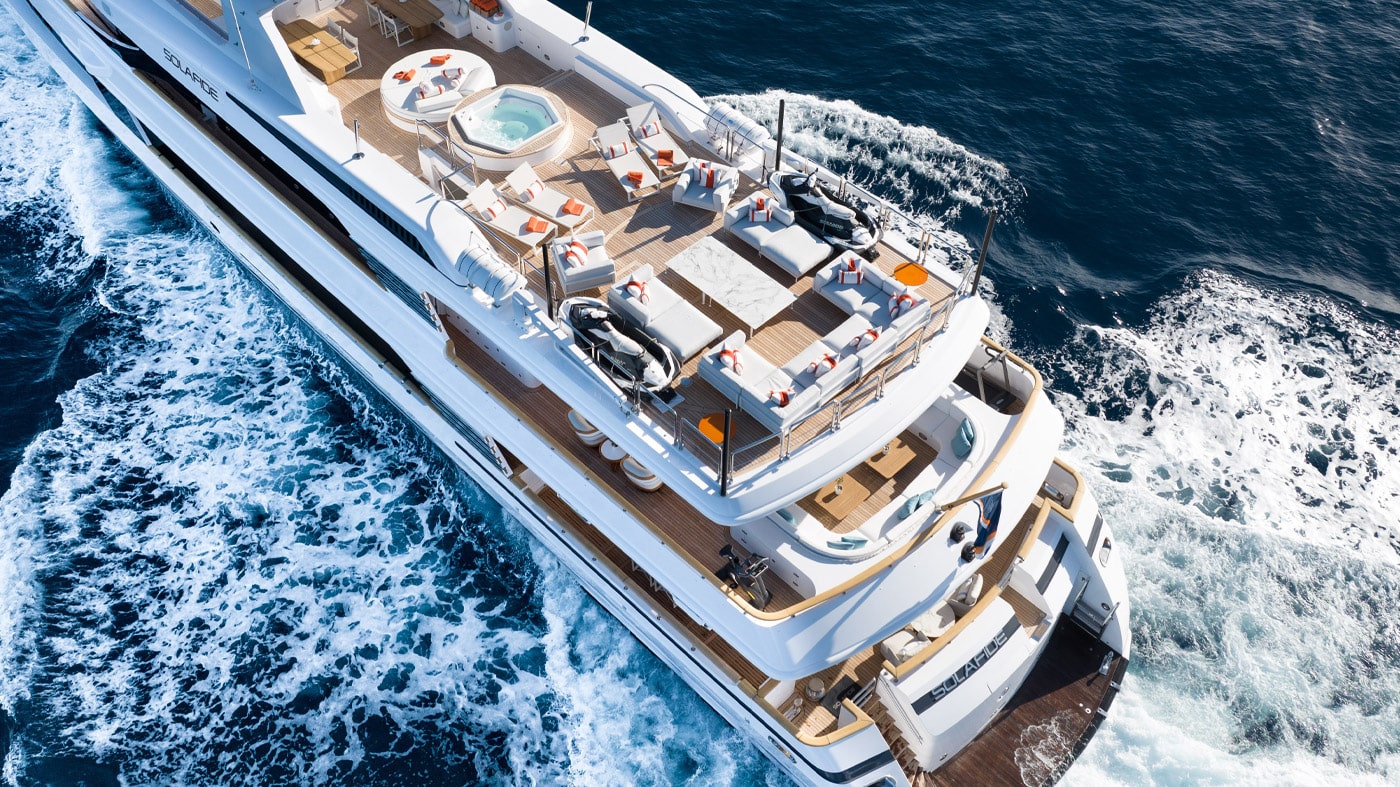Whether sailing toward the sun, perhaps hidden among the pale rocks of an unknown island, or slowly motoring between overcrowded coves, any moment might be the right one to put the tumblers in the cooler and prepare the ingredients for a good cocktail.
And who knows, while squeezing the lime, we might be reminded of Francis Scott Fitzgerald and his Gin Rickey in “The Great Gatsby” or in “Tender is the Night” and decide, then, to follow his recipe. So to the half-squeezed lime we should combine sixty milliliters of gin and ten milliliters of sugar syrup, stir and add ice, sparkling water and lime zest.
But the memories that might surface to us while preparing a cocktail on a boat are many, and the choice among “author’s” cocktails is really wide. Countless writers, in fact, were regular drinkers. Their books overflow with cocktails, wine, and all kinds of spirits. First and foremost is Hamingway. In his “Across the River and Into the Trees” where Colonel Cantwell at Harry’s bar in Venice orders a Mongomery cocktail, “Very dry. Montgomery fifteen to one.” If we chose to make it we should pour inside a mixing glass, filled with ice, a drop of Vermouth. Stir well and add fifteen parts Gin. Pour the drink (without the ice) into the tumbler we had kept chilled.
Speaking of Martini how can we forget The Vesper Martini in “Casino Royal” where Ian Flaming makes James Bond utter the famous phrase, “Shaken not stirred.” The recipe calls for: three parts Gordon, one part vodka and half part China Lillet.

If instead we decided to make a more summery cocktail, we could turn our memories to Truman Capote’s novels such as “Breakfast at Tiffany’s” or “In Cold Blood” where the Screwdriver so beloved by the author appears. A few fresh and definitely alcoholic ingredients: five centiliters of vodka and ten of orange juice.
If we prefer gin to vodka, like Giosuè Carducci who even dedicated the poem “Gin and Junipers” to it, then we could follow the recipe for an excellent Gimlet straight from Detective Philip Marlow in Raymond Chandler’s novel “The Long Goodbye“: “A true Gimlet is half gin and half Rose’s Lime Juice (lime juice and sugar n.d.a.). Nothing else.”
But beware that the gin is good and not like the Victory Gin that Orwell describes in his “1984”: “It was like acid and, what’s more, when you downed it you had the sensation of being hit in the back of the head” although to what the author later points out the final effect is nonetheless positive… the burning sensation in his stomach subsided and the world began to seem happier.“

If the summer heat and the rocking of the waves have already lazy and obnubilated us, we might turn to Charles Dickens and his beloved French 75: six centiliters of Champagne, three of gin, one point five of fresh lemon juice and a teaspoon of sugar. Or simply grab the bottle of Champagne, fill a glass and go up on deck to watch the sun gently disappear into the sea perhaps smiling at the memory of the paradoxical conversation between Geraldine and Antony in “The Beautiful and Damned”:
“Every day you drink something and you’re only twenty-five. Don’t you have any ambition?
Don’t you wonder what you’ll be like when you’re forty?”
“I sincerely trust that I won’t live that long.”








